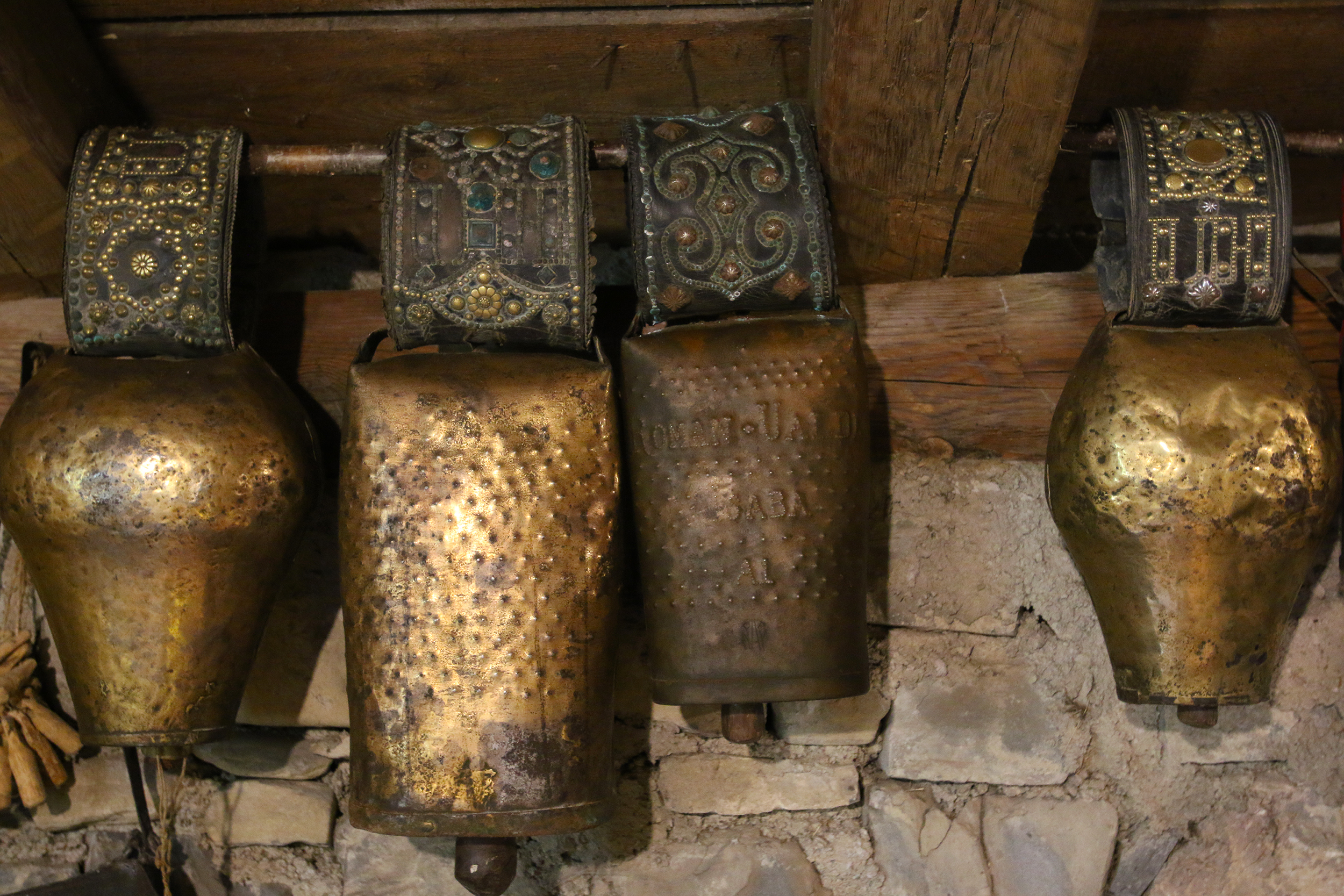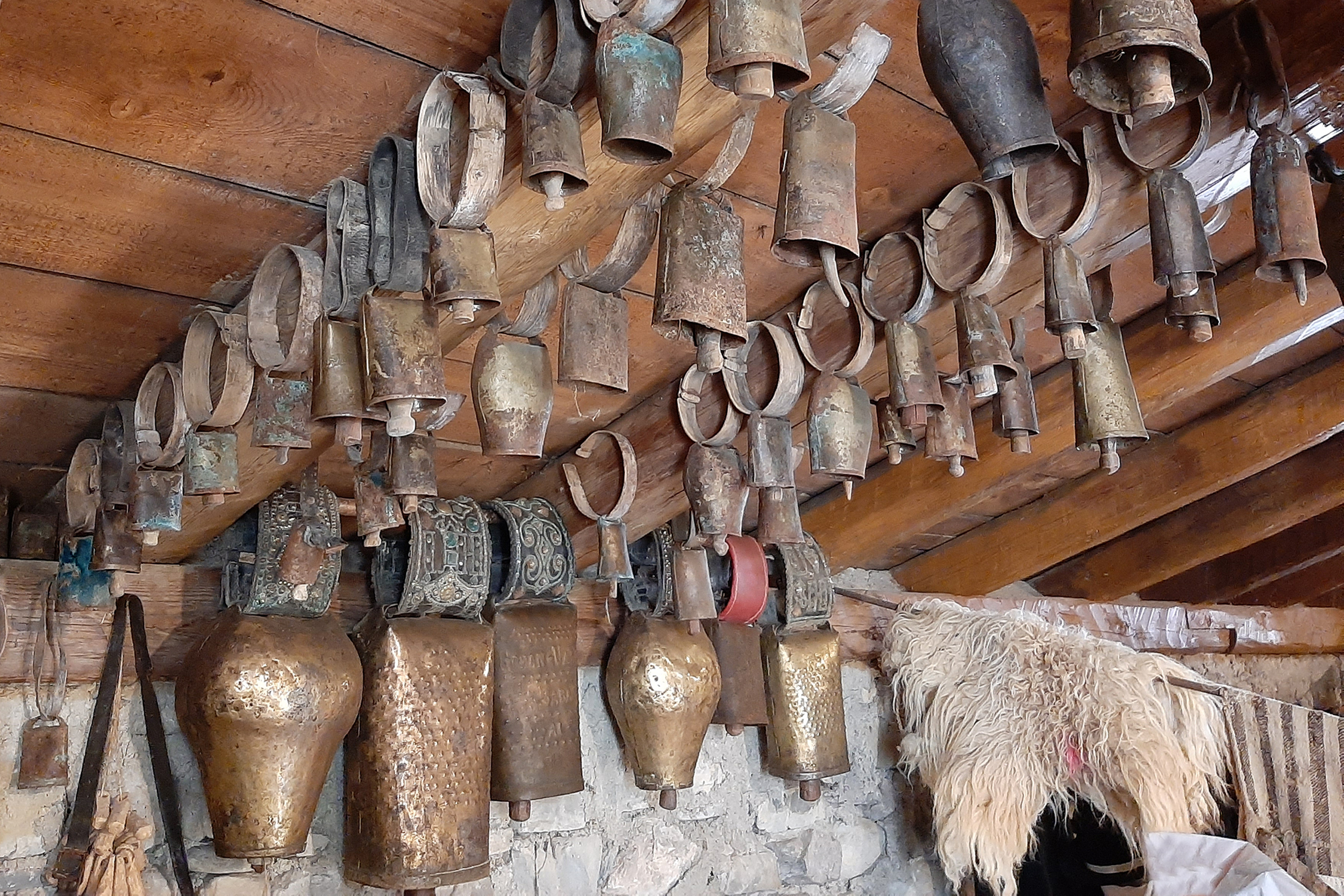Basque ethnography at a glance

Fernando Hualde.
This is a magic time of the year in mountains, mountaintops…, both from a natural and an ethnographic perspective. Departing from our usual focus on ethnography, let us look at a very specific item.
Thousands and thousands of sheep have already moved from lower, snow-free winter pastures to summer pastures in mountains, mountaintops and higher altitudes along the Navarrese Pyrenees and Urbasa and Aralar Mountain Ranges. Our mountains are filled with the sound of bells worn around the neck of free-roaming sheep, goats, kids, wethers, cattle, mares… The tinkling of livestock bells is in fact the most perfect musical accompaniment to the highland dweller or rambler.
Much has been said about animal bells, and much more shall be said, as long as we stay healthy, but let us pay attention to their names this time. Believe it or not, bells are given multiple names: pastoral culture is so very rich. By way of example, we shall showcase in this ethnographic window some of the denominations by which traditional livestock bells are known across the length and breadth of the Chartered Community of Navarre.

Fernando Hualde.
Curiously enough, different types of bells are given different names in the different regions of Navarre. It would be extremely complex to identify each variant by location, depending on shape, use and size. Bells are indeed bequeathed with the greatest wealth of names in Basque-Pyrenean ethnography. Be that as it might, here follow some of the designations found throughout the Navarrese geography, esquila being the most widespread:
In Spanish: barrumbo, calasca, calasco, cañón (Roncal, Salazar), carnalera (Roncal), carrancla, cencerro, cincha, cincherco, clasca (Senosiáin), clasco, cuartizo, chacla (Roncal), esquila (Izurdiaga, Ollo, Roncal, Salazar), faltruca, metal (Roncal), piquete (Roncal), puchero, racla (Oroz-Betelu), ralera, ralla, realera, redondo, tacla (Lower Urraúl), truco (Roncal, Salazar), trunca, ulzamesa, zumba (Senosiáin)…
In Basque: arrana, barrunboa, dulunda, dunba, dunbela, fala, falandia, falea, farea, garea, ioraea, joalea, joarea, joraltea, juarea, kalaska, kalanka, karrankla, klaskoa, kuluka, laska, mandarrana, pulunpa, trunka, txakla (Roncal), txilintxa, txintxa, txintxarkoa, txintxarria, txintxerra, txintxerkoa, xintxerkoa (Ezcároz), zinbala, zintzarria, zinzarria…
In an attempt to define a little better, or more accurately, some of the mentioned names, we shall add that the smallest sheep bells are known as piquetes in the valley of Roncal, raclas in Oroz-Betelu (Iriondo 1998) and taclas in Lower Urraúl (Iriondo 1998)[1]. And musical, high pitched bells for ewes, small but larger than piquetes, are called chaclas, or txaklak, in the valley of Roncal.
Fernando Hualde – Ethnographer – Labrit Heritage
[1] Denominations gathered by José María Iriondo and both included in the Enciclopedia General Ilustrada del País Vasco [General Illustrated Encyclopedia of the Basque Country], Donostia: Auñamendi, 1998.

